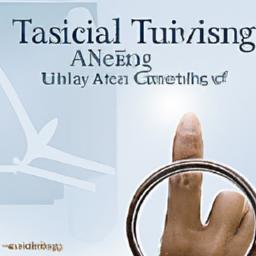In the realm of estate planning, one often overlooked but crucial tool is the living trust checking account. As experienced lawyers specializing in estate planning at Morgan Legal Group in the heart of New York City, we understand the importance of ensuring that your assets are protected and transferred smoothly to your loved ones. This article will delve into the intricacies of utilizing a living trust checking account as part of your comprehensive estate plan.
Understanding Living Trust Checking Accounts
When it comes to estate planning, many individuals choose to set up a living trust to ensure their assets are passed on to their loved ones smoothly and efficiently. One important aspect of managing a living trust is the use of a checking account specifically designated for the trust. Here are some key points to understand about living trust checking accounts:
- Separate Financial Account: A living trust checking account is a separate financial account that is opened in the name of the trust. This account is used to manage the trust’s assets and expenses, such as bills, investments, and distributions to beneficiaries.
- Trustee Responsibilities: The trustee of the living trust is responsible for overseeing the checking account and ensuring that all transactions are in line with the terms of the trust. It is important for the trustee to keep accurate records and documentation of all financial activities related to the trust.

Benefits of Having a Living Trust Checking Account
Having a living trust checking account offers numerous advantages that can streamline your financial affairs and ensure a smooth transition of assets to your beneficiaries. One of the main benefits is that a living trust checking account allows you to manage your assets more efficiently during your lifetime. By consolidating your financial accounts into a trust checking account, you can easily keep track of your finances and make necessary transactions without the need for court intervention.
Additionally, a living trust checking account can help you avoid the probate process, as assets held in a trust do not go through probate upon your passing. This means that your beneficiaries can access the funds in the trust checking account much faster, saving time and money on legal fees. Furthermore, a living trust can provide privacy for your beneficiaries, as the distribution of assets through a trust is not a matter of public record. Overall, establishing a living trust checking account is a strategic financial decision that can benefit both you and your loved ones.

Considerations When Setting Up a Living Trust Checking Account
When setting up a living trust checking account, there are several important considerations to keep in mind to ensure that your financial affairs are properly managed. One key factor to consider is the choice of financial institution where you will open the account. It is essential to select a reputable bank or credit union that offers trust account services and has experience in managing trust funds.
- Fees: Consider the fees associated with the account, such as monthly maintenance fees, transaction fees, and overdraft fees.
- Accessibility: Ensure that the account is easily accessible to the trustees and beneficiaries of the trust, allowing for seamless management of funds.
- Security: Verify that the financial institution is FDIC insured to protect the assets held in the trust account.
Another important consideration when setting up a living trust checking account is designating the appropriate signatories for the account. Typically, the trustees of the trust will have signing authority over the account, allowing them to deposit and withdraw funds as necessary to fulfill the objectives of the trust. It is crucial to clearly outline the roles and responsibilities of each trustee to avoid any confusion or potential disputes in the future. By choosing the right financial institution and establishing clear guidelines for signatories, you can ensure that your living trust checking account is set up effectively and will serve its intended purpose.

Recommendations for Managing a Living Trust Checking Account
When managing a living trust checking account, it is important to follow these recommendations to ensure the proper administration of the trust:
- Keep accurate records: It is crucial to maintain detailed records of all transactions related to the trust checking account. This includes deposits, withdrawals, transfers, and any fees incurred.
- Review statements regularly: It is essential to review monthly bank statements to verify that all transactions are accurate and authorized. Any discrepancies should be addressed promptly to prevent any issues.
Additionally, it is recommended to:
- Limit access: Only designated trustees or beneficiaries should have access to the trust checking account to prevent unauthorized transactions.
- Consult with a legal professional: It is advisable to seek guidance from an experienced estate planning attorney to ensure compliance with all legal requirements and to avoid costly mistakes.
Q&A
Q: What is a living trust checking account?
A: A living trust checking account is a special type of account used for managing assets held within a living trust.
Q: How does a living trust checking account differ from a regular checking account?
A: Unlike a regular checking account, a living trust checking account is specifically designated for the assets owned by a living trust, rather than for personal use.
Q: What are the benefits of having a living trust checking account?
A: Having a living trust checking account can help streamline the management of trust assets, provide greater control and oversight, and facilitate the distribution of assets after the trust owner’s passing.
Q: Who should consider opening a living trust checking account?
A: Individuals who have established a living trust and wish to efficiently manage and distribute their assets in accordance with their trust documents should consider opening a living trust checking account.
Q: Are there any drawbacks to having a living trust checking account?
A: One potential drawback of a living trust checking account is the additional complexity involved in managing trust assets separately from personal finances. Additionally, fees and restrictions may apply.
Q: How can one open a living trust checking account?
A: To open a living trust checking account, individuals should contact their financial institution to inquire about specific requirements and documentation needed to establish the account.
Q: What should one consider when choosing a financial institution for their living trust checking account?
A: When choosing a financial institution for a living trust checking account, individuals should consider factors such as fees, account features, customer service, and the institution’s trust services expertise.
In Retrospect
In conclusion, a living trust checking account can be a valuable tool in managing your assets and ensuring your wishes are carried out in the event of incapacity or death. By designating your trust as the owner of the account, you can streamline the transfer of assets and avoid the probate process. Consider speaking to a financial advisor or estate planning attorney to see if a living trust checking account is right for you. Take control of your financial future and protect your legacy with this effective estate planning tool.
 Living Trust Checking Account: Everything You Need to Know
Living Trust Checking Account: Everything You Need to Know
When it comes to estate planning, having a living trust checking account is an essential component that can potentially save your loved ones from the hassles of probate court. In simple terms, a living trust checking account is a checking account that is linked to a living trust. It is a popular choice for those who want to ensure their assets are managed and distributed according to their wishes after they pass away.
In this comprehensive guide, we will dive into the details of living trust checking accounts, how they work, their benefits, and practical tips for setting one up. Whether you are already familiar with living trusts or are just starting to explore the concept, this article will provide valuable information to help you make informed decisions for your estate planning.
What is a Living Trust Checking Account?
A living trust checking account, also known as a “trust account” or “revocable trust account,” is a bank account that is linked to a living trust. A living trust is a legal document that allows you to transfer the ownership of your assets to a trustee who will manage them on your behalf. This trustee can be yourself or another trusted individual, and the assets can include real estate, investments, and yes, even bank accounts.
Unlike a will, which only takes effect after your death, a living trust becomes active as soon as it is created. This means that any assets in the trust are immediately transferred and managed by the trustee. In the case of a living trust checking account, the funds are transferred into the trust and can be used for daily expenses and bills. However, the account is still subject to the rules and guidelines set by the trust document.
How Does a Living Trust Checking Account Work?
To understand how a living trust checking account works, let’s break it down into three key components: the account holder, the trustee, and the beneficiaries.
1. The Account Holder
The account holder is the person who creates the living trust and funds the trust account. It can be an individual or a couple, and they are responsible for writing the trust document and designating a trustee to manage the account.
2. The Trustee
A trustee is the person or entity responsible for managing the assets within the trust. They have a legal obligation to follow the guidelines set out in the trust document. Depending on the terms of the trust, the trustee may have the authority to use the funds in the living trust checking account for the benefit of the beneficiaries.
3. The Beneficiaries
The beneficiaries are the people or organizations who will receive the assets from the trust after the account holder passes away. They can be family members, friends, or even charities.
Benefits of a Living Trust Checking Account
1. Avoiding Probate
One of the most significant advantages of having a living trust checking account is avoiding probate. Probate is the legal process of validating a will and distributing the assets of the deceased. It can be a lengthy, expensive, and complicated process, often taking several months or even years to complete. By having a living trust checking account, the funds are transferred directly to the trust beneficiaries without going through probate.
2. Maintaining Privacy
Unlike a will, which becomes a matter of public record after going through probate, a living trust allows you to keep your finances and beneficiaries private. This can be beneficial for those who value their privacy or have complicated family dynamics.
3. Ensuring Continuity
In the case of incapacitation, a living trust can ensure that your finances are managed according to your wishes. With a living trust checking account, your designated trustee can continue to pay your bills and manage your finances on your behalf.
4. Flexibility and Control
A living trust checking account allows the account holder to have more control and flexibility over their assets, even after they pass away. With a revocable living trust, you can make changes or revoke the trust at any time, giving you more autonomy over your financial affairs.
How to Set Up a Living Trust Checking Account
1. Consult an Attorney
Creating a living trust and setting up a trust checking account is a legal process that may require the assistance of an experienced attorney. They can help you determine if a living trust is the right option for your estate planning needs and guide you through the process.
2. Decide on the Type of Trust Checking Account
There are two types of trust checking accounts: individual and joint. An individual trust account is set up by a single account holder, while a joint trust account is created and managed by a couple. You will need to decide which type of account best suits your needs.
3. Fund the Account
Once the trust account is set up, you will need to fund it by transferring assets from your personal checking account. This can be done through a simple bank transfer.
4. Name a Successor Trustee
It is crucial to name a successor trustee in your trust document, who will manage the trust account and distribute the assets after you pass away. This person should be someone you trust and who is capable of handling financial matters.
5. Update Beneficiary Designations
Make sure to update the beneficiary designations on all your accounts to match the terms of your trust document. This includes bank accounts, life insurance policies, and retirement plans.
In Conclusion
A living trust checking account is an essential tool for those who want to ensure their assets are managed and distributed according to their wishes. By avoiding probate and maintaining privacy, a living trust can provide peace of mind and ensure a smooth transfer of assets to your loved ones. If you are looking to create a comprehensive estate plan, it is worth considering a living trust and a trust checking account as part of your strategy.
Remember to consult with a professional and update your estate plan regularly to reflect any changes in your financial situation or family structure. With proper planning, you can ensure that your assets are protected and your loved ones are taken care of even after you are gone.


